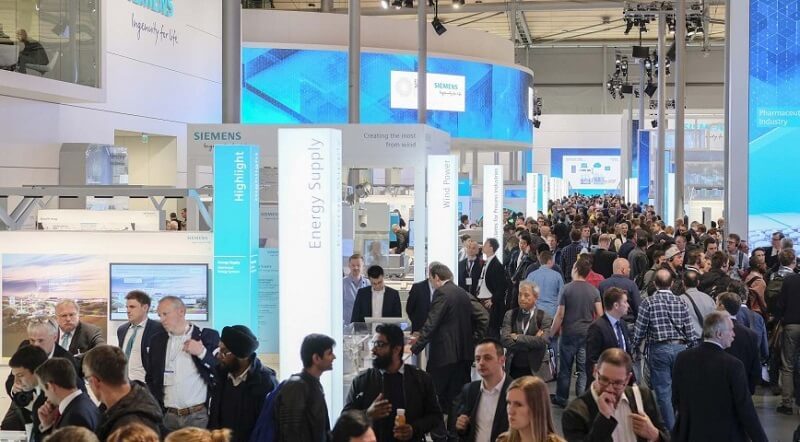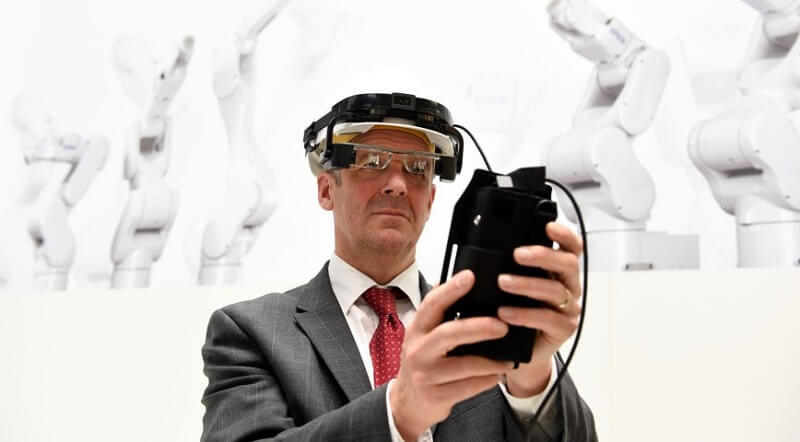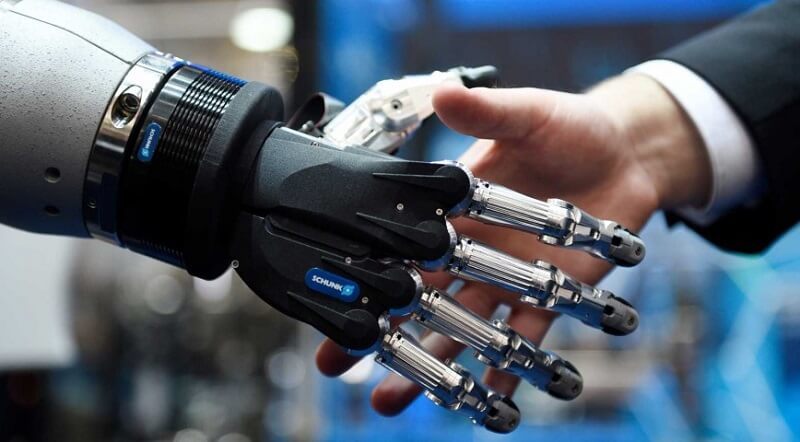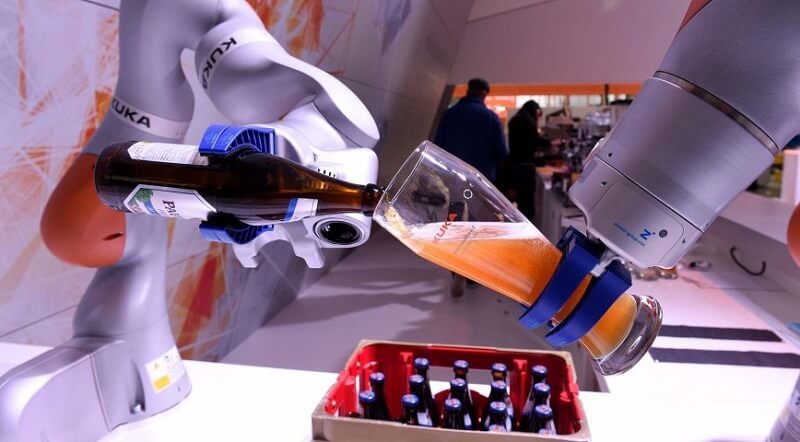From April 24 to April 28 in Germany took place Hannover Messe 2017 – one of the biggest trade fairs in the world. This year it hosted 225,000 guests and 6,500 exhibitors who displayed their latest innovations in various spheres. Intetics software business consultant Sergey Danilyuk visited the fair and shared his thoughts and impressions about the hottest trends.
Industry 4.0: what awaits us in the future of manufacturing industry
Fourth industrial revolution may sound futuristic but it’s here and already taking over the market. Germany did not only take first steps towards it but is ready to show the world its first development results which will significantly increase the competitive advantage of country’s manufacturing.
Such innovations are possible due to the integration of cyber-physical systems into manufacturing processes, simply put – Industry 4.0 can be named the IoT counterpart but in manufacturing.
Industry 4.0 will include personalization of proposed goods and services on the whole new level – you will not even have to make a request to the company, instead, your device will be able to do it. Let’s take your cell phone as an example. It will be able to determine whether it needs to change any parts and upon that, make a request for a new battery, as an example. Or, in case the whole device should be replaced, an almost identical phone (with same settings that you have) will be waiting for you.
Among the exhibitors Siemens, was one of the leaders in Industry 4.0 and presented its “digital twins” concept. Klaus Helmrich, Member of the Managing Board of Siemens AG, noted: “With our software portfolio we are the only supplier capable of offering the digital twin across the entire value chain – for products, for production and complete plants”.
Digital twin is a digital copy of any industrial object, a wind turbine, for example. Using sensors that are installed on the physical object, digital twin collects the data about the object, analyzes it and, if necessary, can take actions and immediately notify the user of any malfunctions. Such technology offers incredible opportunities for plants and factories, increases work efficiency and flexibility of manufacturing process and significantly reduces the number of potential risks and industrial deficiencies.
Ifm company also impressed the trade fair guests by offering them a unique experience. Anyone could visit virtual factory with the help of augmented reality technology, virtually interact with digital objects and even data, which was collected in real-time, and see how exactly the installed sensors work.
Rampant IoT development
Another trend worth mentioning is Internet of Things or IoT, which everyone related to IT world has heard of.
IoT cannot be considered the 2017 biggest news because it’s been in the spotlight for a few years already. Nevertheless, technology development does not stay still and today IoT has much more potential and possible fields of application than a year ago.
If we speak theory, any device can be turned into “smart” one, the challenge lies in developing and designing necessary sensors, microcontrollers and circuit boards. In this context Intetics, has offers that can interest and already got the attention of representatives of leading international companies. The company provides services in regards to IoT and Industry 4.0 by building ad-hoc server side solutions and encouraging its clients to take advantage of the plethora of data generated by the sensors. On top of that, Intetics can develop the above-said sensors, including microcontrollers programming and printed circuit boards design. Every offer is individual and customized depending on client requirements and goals.
“The first thing that caught my eye was the fact that more and more companies have started investing heavily into the creation of IoT platforms as this market still has room for new players. IoT platforms enable its users to connect easily their devices to the existing software and to develop new software in an easy way with the help of integrated SDKs”, says Sergey.
Since IoT implies work with excessive amounts of data, one of the most challenging tasks nowadays is developing a storage which would allow working with resources in the most optimal and efficient way, at the same time being completely reliable and secure. At Hannover Messe, one of such companies was Amazon with its product: Amazon Elastic Compute Cloud, a web service that provides computation capacities in the cloud. This service gives users access to computation capacities and enables the users to adjust these capacities with minimal resource losses. Thus, it significantly reduces the time that is needed for obtaining and uploading a new server.
Cobots: our future colleagues
There was one more trend that lays the foundation for the manufacturing industry. A new generation of robots called “cobots” (from a “co-worker”) is aimed at assisting and helping people in performing certain work. Unlike robots doing autonomous work (like conveyor), cobots will work side-by-side with people and react to their actions and behavior with the help of special sensors. This technology will help small and middle-sized companies to increase their efficiency and competitive advantage by implementing cobots in the production processes.
Of course, when we speak about robots and their interaction with people, a question of security comes in place and cobot developers have answers for it. Firstly, one of the methods of working with cobots is “direct guidance”, in this case, robot moves or performs any actions only after receiving a command from a person. Secondly, if a cobot has to perform actions that do not require commands, its activity will be carefully monitored. As well, if the cobot breaks the “safe zone” between itself and a person, the robot will slow down its movements to reduce or eliminate any risks of harming people.
Kuka is legitimately considered the industry’s leader in this sphere. The company presented its cobots and emphasized that people still play and will play a central part in all processes but cobots are designed to simplify these processes and aid people in the most efficient way. During the fair cobots were performing different actions, none of which could be described as “conveyor” type of work that we normally associate with robots in the industry. Kuka also mentioned its readiness to enter the Industry 4.0 period and closely focused on customer interests and needs, noting that these interests will serve as the bottom line for all future development.
«I was deeply impressed by the number of robots and their capabilities which have been drastically evolving over the past few years. Also, there is a new trend – cobots – collaborative robots, which are about to fundamentally transform the way people work in factories. Their connectivity, artificial intelligence, innovative sensors and intuitive operation allow them to communicate directly with humans, as they learn autonomously and swap instructions with other cobots».
It is worth mentioning that for the first time since its establishment Hannover Messe had more than 75,000 foreign guests. This number is a great indicator of how rapidly technology evolves around the world and how real becomes something that seemed sci-fi a couple years back.
*All photos are taken from official Hannover Messe website.




